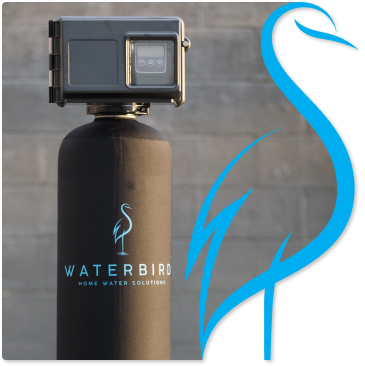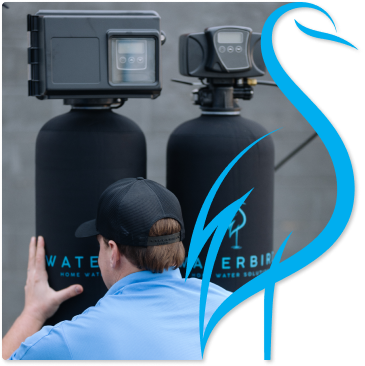Getting a water softener installation in Delaware, OH, is a great way to help extend the overall longevity of your plumbing system. Softeners remove excessive mineral sediments from your water supply, essentially turning hard water into soft water, preventing limescale on appliances and other effects, like dry skin. Our water softener system professionals are here to assist you with all your installation needs and can help you with maintenance and repairs for as long as you have your water softener.
Water Softener System Installation in Delaware, OH

Delaware’s Top Water Softener Installation Service
With approximately 85% of the nation dealing with hard water at their homes, Delaware is no exception. Hard water has a very high concentration of minerals like calcium and magnesium. These minerals tend to leave behind limescale buildup on your fixtures and can prematurely deteriorate your piping and other plumbing components. Hard water can even make it harder to clean your clothes and dishes and leave your hair frizzy and your skin overly dry. Fortunately, a water softener can help.
- Resin beads
- Mineral tank
- Brine tank
- Control valve
- Drain line
- Bypass valve
- Safety float
- Brine injector
All these components work together in one system to help remove magnesium and calcium from your home’s water supply. A water softener is typically installed on your water main, often right before your home’s water heater. This allows it to treat all the water coming into your home before it reaches all of your piping, plumbing fixtures, and appliances.
This system works via the ion exchange process. Inside the larger mineral tank are resin beads that are negatively charged with sodium molecules. The magnesium and calcium in the water will naturally bond to the resin beads and release the sodium molecules. As fresh water comes into the mineral tank, this ion exchange process happens, and sodium releases into the water as it travels to the rest of your plumbing fixtures.
Every so often, the water softener will go through a regeneration cycle where brine solution from the brine tank enters the mineral tank. This brine solution removes all the magnesium and calcium from the resin beads and flushes them away. It’s also responsible for recharging all the resin beads with sodium so that they can continue to do their job effectively.
Because these water softener systems use salt, they do require a little maintenance on the part of the homeowner. You need to refill the salt for the brine tank in order to keep your system functioning optimally. The frequency of refilling is going to highly depend on how hard your water is. Most homeowners find that they need to refill their salt tank around once a month. Most water softener systems will last for around 10 to 15 years with proper upkeep and care.
Water Softener System Specialists
WaterBird Home Water Solutions offers exceptional water softener systems for the entire Delaware region. We’re very proud to be a family-owned company that offers free water testing for all our valued customers. With over 45 years of experience, our plumbers have a wealth of information and always act with the utmost professionalism on every service call that they do.
Frequently Asked Questions

If you need professional water softener installation service in Delaware, call WaterBird Home Water Solutions today.
Explore all of our professional water treatment services!

